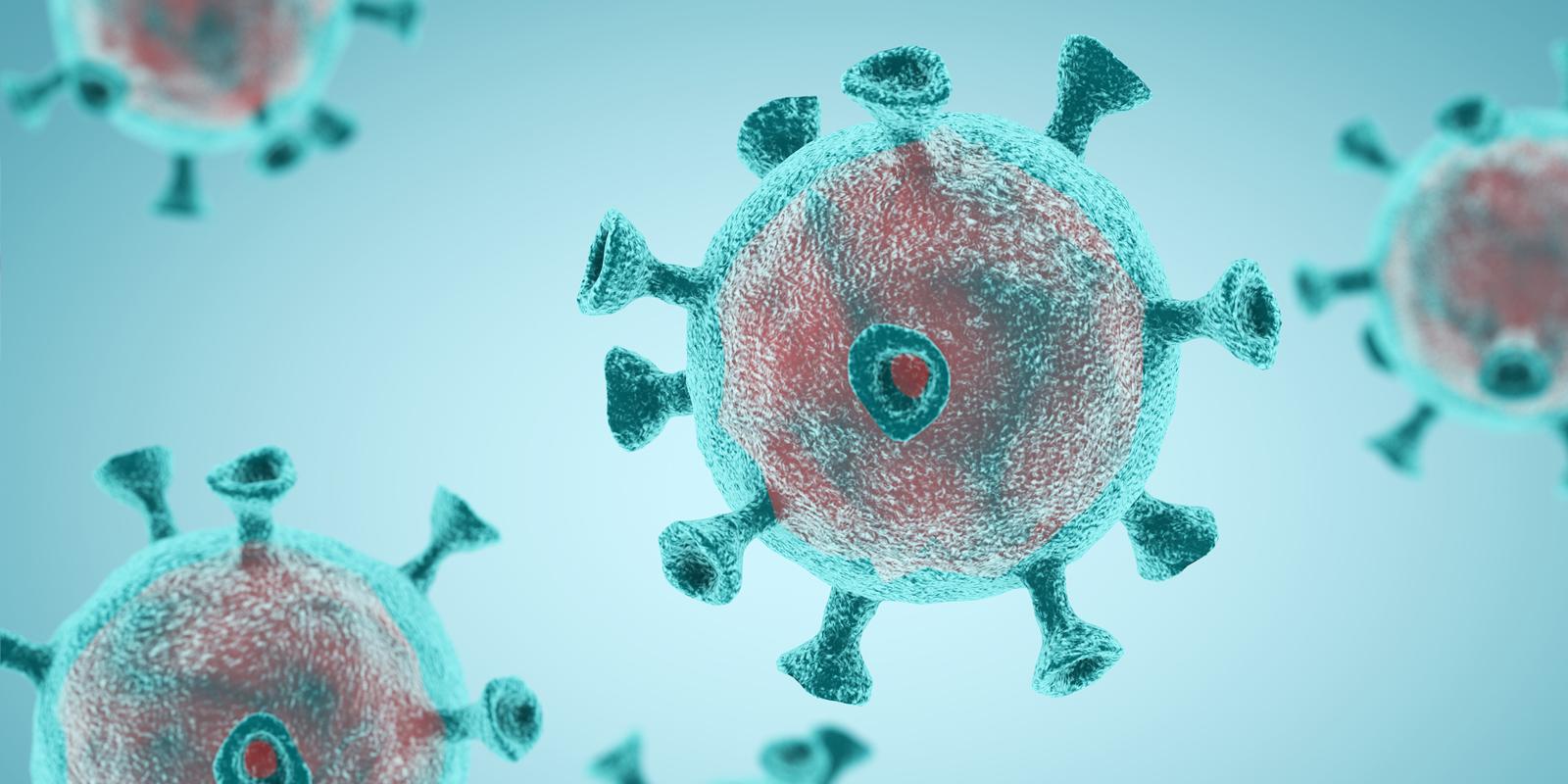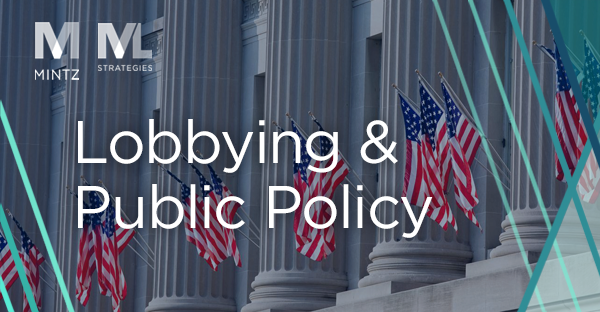
COVID-19 Viewpoints
Filter by:
FCC Releases Guidance on COVID-19 Telehealth Program Application Process
April 9, 2020 | Blog | By Russell Fox, Angela Kung
In preparation for accepting applications for funding under the its COVID-19 Telehealth Program, which will make available $200 million in appropriated funds to support telehealth services during the COVID-19 pandemic, the FCC has released a Public Notice with guidance on how eligible health care providers can ready themselves to participate. The FCC will release a separate Public Notice shortly announcing the date it will begin accepting applications for funding. Applications will be accepted through an online portal, the web address and opening date for which will also be posted on the FCC’s Keep Americans Connected page.
Read more
DOJ Is Already Making Good on AG Barr’s Instruction to Detect, Deter, and Punish Wrongdoing Related to Coronavirus
April 7, 2020 | Blog | By Samantha Kingsbury
On March 16th, Attorney General William Barr issued a memorandum to all United States Attorneys directing each U.S. Attorney’s Office (USAO) to “prioritize the detection, investigation, and prosecution of all criminal conduct related to the current pandemic,” noting that “the pandemic is dangerous enough without wrongdoers seeking to profit from public panic.” It appears that USAOs have wasted no time in prioritizing such cases, as the owner of a Georgia-based marketing company that generated leads for medical-testing companies was arrested earlier this week and charged with conspiracy to commit health care fraud and conspiracy to violate the Anti-Kickback Statute.
Read more
Federal Government Provides Liability Immunity to Manufacturers and Distributors in Fight Against COVID-19: What Companies Need to Know
April 7, 2020 | Blog | By Brian Dunphy, Daniel Herling, Alain Mathieu
Over the past several weeks, the Firm has received a number inquiries from clients (on both coasts) who are interested in manufacturing or selling test kits, respirators, masks, and other PPE in response to the COVID-19 pandemic, with respect to potential liability risks associated with such activities.
Read more
FDA Expands Face Mask Enforcement Policy to Allow Imports of KN95 Respirators
April 7, 2020 | Blog | By Benjamin Zegarelli
On April 2, 2020, the Food and Drug Administration (FDA) issued a revised temporary enforcement policy regarding the manufacture and distribution of face masks and filtering facepiece respirators during the COVID-19 public health emergency. The revisions address two key omissions from the initial policy, which was released on March 25, 2020 and which we summarized in a prior blog post. Specifically, the agency has now provided guidance on: (1) the importation of respirators not approved by the National Institute for Occupational Safety and Health (NIOSH) and (2) the manufacture and distribution of face shields. FDA also added a question and answer about respirators manufactured in China to the KN95 air filtering standard (the Chinese equivalent of the U.S. government’s N95 standard) to its FAQ page on the personal protective equipment shortage and issued an emergency use authorization for non-NIOSH-approved respirators made in China.
Read more
U.S. Department of Justice Issues First COVID-19-Related Business Review Letter to Medical Supplies Distributors
April 6, 2020 | Blog | By Bruce Sokler, Joseph Miller , Tinny Song
Back in March, we wrote a blog post regarding the FTC and DOJ’s joint statement on antitrust guidance for COVID-19 public health efforts. As part of the press release, the Agencies announced that companies could request an expedited staff opinion on requests for review of collaborative COVID-19-related business efforts. The Agencies would endeavor to respond to all requests within seven business days. On Saturday, the DOJ issued its first business review letter, allowing to come to fruition a joint effort by McKesson, Owens & Minor, Cardinal Health, Medline, and Henry Schein (the “Medical Supplies Distributors”) to expedite and increase manufacturing, sourcing, and distribution of personal-protective equipment (PPE) and COVID-19-related medication.
Read more
IRS Issues Guidance for CARES Act Employee Retention Credit
April 3, 2020 | Alert
Read about recently issued IRS guidance related to the employee retention credit enacted in the Coronavirus Aid, Relief and Economic Security (“CARES”) Act.
Read more
Governor Baker Extends and Modifies Order Closing All Non-Essential Massachusetts Businesses: Updates that Office Landlords Should Know
April 3, 2020 | Blog | By Chelsea Wood-Brown, Jennifer Kiely, Kelly Frey
On March 23, 2020, Governor Charlie Baker of Massachusetts issued COVID-19 Order No. 13 requiring all businesses and organizations in the Commonwealth of Massachusetts that do not provide “COVID-19 Essential Services” (“Essential Services”) to close their physical workplaces and facilities to workers, customers and the public as of 12:00 noon on Tuesday, March 24, 2020 until 12:00 noon on April 7, 2020. On March 31, 2020, Governor Baker issued a related order, COVID-19 Order No. 21 (the “Order”) extending the operation of its previous order to May 4, 2020 and updating the list of Essential Services based on federal guidance.
Read more
Barriers to Telehealth Continue to Fall After CARES Act and Other Federal and State Actions
April 3, 2020 | Blog | By Ellen Janos
As we’ve previously discussed on the blog, telehealth is playing a critical role in delivering care during the COVID-19 pandemic. Both Congress and states continue to take action to expand the use and reimbursement of telehealth services. The Coronavirus Aid, Relief, and Economic Security Act (CARES Act) passed by Congress last Friday includes many provisions that further expand the use and reimbursement of telehealth during this public health emergency. Congress previously took action to start waiving certain telehealth requirements in the Coronavirus Preparedness and Response Supplemental Appropriations Act (Appropriations Act) passed on March 6, 2020, which we previously discussed here. In this post, we’ll cover the key ways that the CARES Act continues to remove barriers to telehealth, in addition to other recent federal and state actions.
Read more
Five Suggested Updates for 340B Covered Entities Facing COVID-19 Challenges
April 2, 2020 | Blog | By Daryl Berke
The Health Resources and Services Administration (HRSA) recently published guidance regarding the evolving impact of COVID-19 on 340B stakeholders. This new guidance is one part of the U.S. Department of Health and Human Services’ broader effort to maximize regulatory flexibility for health care providers scrambling to meet patient needs during the COVID-19 crisis. While HRSA’s new guidance begins by acknowledging “it is appropriate to take into account the realities of the COVID-19,” HRSA offers little in the way of substantive relief when it comes to 340B. Long on generalities and short on specifics, HRSA merely advises entities to ensure they “have policies and procedures in place to address the proper dispensing of 340B drugs.”
Read more
CMS Releases Several Stark Law Waivers for Use during the COVID-19 National Emergency
April 1, 2020 | Blog | By Theresa Carnegie, Rachel Yount
On March 30, 2020, the Centers for Medicare & Medicaid Services (CMS) issued blanket waivers to the Stark Law that permit certain arrangements between physicians and health care providers implemented in response to COVID-19 that would otherwise violate the Stark Law. The waivers, which are numerous and fairly broad, offer health care entities significant flexibility to combat COVID-19 in ways that may have otherwise violated the Stark Law, such as the ability to pay physicians hazard pay and provide personal protective equipment to physicians at a price that is below fair market value (FMV). Importantly, the waivers only apply to remuneration and referrals related to COVID-19 purposes.
Read more
FCC Chairman Proposes Plan to Implement CARES Act Funding for Telehealth Program
March 31, 2020 | Blog | By Jane Haviland, Ellen Janos
On Monday, FCC Chairman Ajit Pai circulated a plan to his fellow Commissioners detailing how the $200 million the agency will receive via the CARES Act should be deployed for a telehealth program to combat COVID-19. The telehealth program will enable eligible healthcare providers to purchase telecommunications, broadband connectivity and information services, and devices necessary to provide telehealth services to beneficiaries. The increased access to the tools needed to provide care via telehealth will allow COVID-19 patients to receive care and providers to give it, while reducing opportunities for further exposure.
Read more
Coronavirus Relief Bill Includes Surprise Addition: OTC Monograph Reform Bill Becomes Law
March 30, 2020 | Blog | By Joanne Hawana
As a follow up to our recent blog post, FDA User Fees: Highlights from FDARA & Our Forecast for the Next Round, President Trump signed the bipartisan over-the-counter (OTC) monograph teform bill into law on March 27, 2020. The passage of the OTC monograph reform bill is a surprise addition into the Coronavirus Aid, Relief, and Economic Security Act (CARES Act), the third COVID-19 stimulus bill enacted since the pandemic began. The reform legislation represents the first significant update to federal oversight of OTC drug products since 1972. It enables the Food and Drug Administration (FDA) to quickly respond to safety concerns and keep pace with innovation in hopes of protecting consumers from unsafe drugs and permitting manufacturers to market new products more expeditiously.
Read more
Small Business Loans for COVID-19 Economic Disaster Relief
March 30, 2020 | Alert | By Sahir Surmeli, Joseph Price, Joseph J. Ronca
This alert describes two types of relief loans available to small businesses suffering due to COVID-19: Paycheck Protection Program (PPP) loans and SBA EIDL loans.
Read more
FDA Creates Regulatory Exemptions for Face Masks and Respirators in Response to the Spread of COVID-19 and Critical PPE Shortages
March 27, 2020 | Blog | By Benjamin Zegarelli
On March 25, 2020, the Food and Drug Administration (FDA) issued a temporary policy relating to enforcement of regulatory requirements for face masks and respirators during the COVID-19 crisis. Since the public health emergency began, the United States has experienced a shortage of masks, respirators, and other personal protective equipment (PPE) which are critically needed for health care workers caring for COVID-19 patients in all states. FDA previously created emergency use authorizations (EUAs) for NIOSH-approved disposable respirators for use in health care settings and imported non-NIOSH-approved disposable respirators, but the temporary enforcement policy represents an attempt to open the manufacturing, importation, and distribution flood gates to make more masks and respirators available as quickly as possible.
Read more
Boards of Pharmacy Nationwide Respond to COVID-19 Pandemic
March 26, 2020 | Blog | By Rachel Yount
In response to the nationwide COVID-19 emergency, state boards of pharmacy across the country are authorizing waivers of specific provisions of pharmacy laws and implementing policies to address potential staffing shortages and emergency dispensing of pharmaceuticals. Here's a high-level overview of the various actions being taken by state boards of pharmacy.
Read more
Federal Trade Commission and Justice Department Release Joint Antitrust Guidance for COVID-19 Public Health Efforts
March 25, 2020 | Blog | By Bruce Sokler, Joseph Miller
As the COVID-19 pandemic continues to spread, so too have concerns about collaboration between competitors attempting to address unmet needs due to this national emergency. Shortages of medical supplies, personal protective equipment (PPE), and health care services pose questions of whether stakeholders can join forces in order to provide these much needed services and supplies.
Read more
Privacy In The Time of COVID-19: Engendering Customer Trust When Governments Ask For Smartphone And Other Data To Track Virus Activity
March 24, 2020 | Blog
With the advent of COVID-19, countries around the world are facing a novel challenge that affects them in unprecedented ways economically, socially, and otherwise. From a public health perspective, now perhaps more than ever before, authorities are interested in understanding more about the movement patterns of those within their borders, including where certain individuals have traveled to, who they have met with, and where they are located now.
Read more
COVID-19 Texts from Health Care Providers Legal Under TCPA, FCC Confirms
March 23, 2020 | | By Russell Fox
This alert reviews a March 20 FCC declaratory ruling clarifying that COVID-19–related texts qualify as emergency exceptions under TCPA.
Read more








